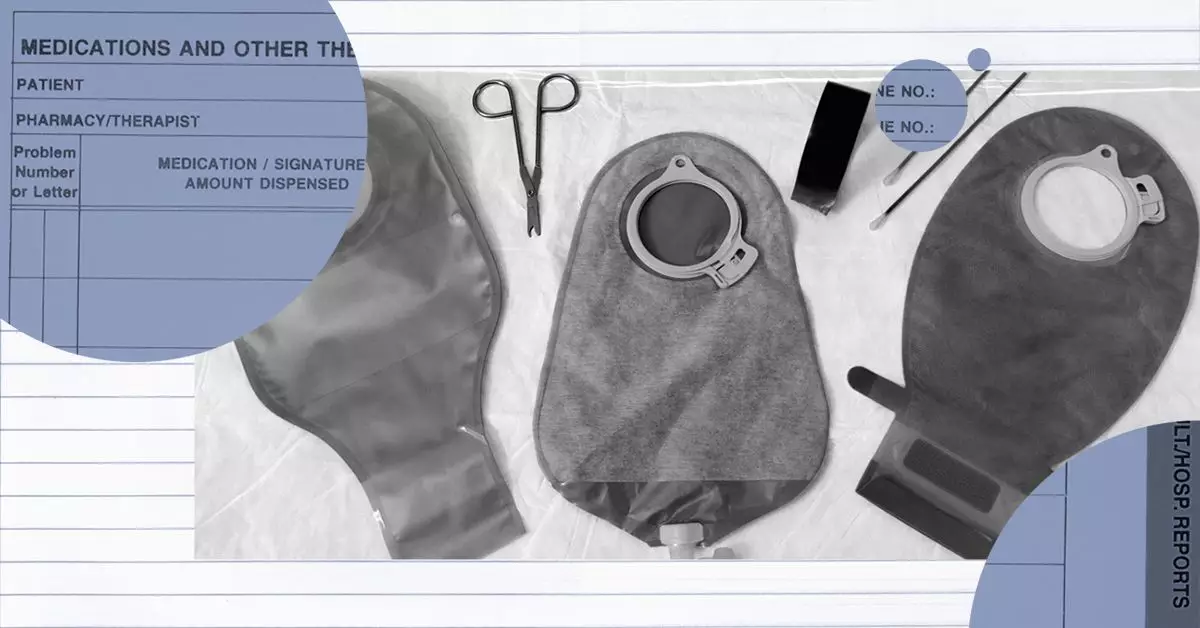Ileostomy surgery can be a life-altering procedure, primarily designed to divert the flow of digestive waste from the intestines to an external pouch. For many individuals facing severe bowel conditions, such as Crohn’s disease or ulcerative colitis, an ileostomy can provide much-needed relief and improve their overall quality of life. However, adjusting to this new reality involves understanding how to maintain proper hygiene, care for the ileostomy bag, and navigate lifestyle changes. This article explores the intricacies of living with an ileostomy bag, emphasizing the importance of care and support.
An ileostomy bag is a specialized container that attaches to the stoma — a surgically created opening in the abdominal wall — to collect waste material. Unlike natural bowel movements that occur through the anus, individuals with an ileostomy rely on this bag to manage the continuous output of waste. One of the critical components of effective ileostomy management is recognizing the significance of timely bag emptying. Typically, patients need to empty their bags several times a day, depending on their diet and liquid consumption levels.
Proper maintenance of the ileostomy bag is crucial for skin health and overall comfort. Keeping the skin around the stoma clean and dry is imperative to avoid irritation or infections. Patients should empty the bag when it is around one-third to half full to prevent leaks or undue pressure on the stoma. In doing so, individuals should wash their hands thoroughly and cleanse the surrounding skin before and after the emptying process.
Additionally, a consistent pouch changing routine — ideally every 2 to 3 days, or more frequently for some — ensures hygiene is maintained. This practice helps to reduce the likelihood of complications, such as skin breakdown or pouch failure. It is advisable to use skin barriers or protective creams to promote skin health, making the stoma less susceptible to irritation.
Diet plays a vital role in managing an ileostomy. Adjusting eating habits can enhance comfort and prevent any issues related to excessive output or blockages. The recommendation often includes consuming smaller, more frequent meals rather than large ones. This strategy helps regulate bowel output and can minimize nighttime disturbances, ensuring a better quality of sleep.
Moreover, it is wise to be cautious with certain foods that may cause gas or excessive waste production. For instance, fibrous and gassy foods can lead to discomfort and may also affect the pouch’s integrity. A balanced diet, rich in proteins and fluids, can further support overall health and recovery.
While the physical aspects of living with an ileostomy are significant, the emotional and social effects are equally important. Many individuals might experience anxiety or embarrassment about their condition, especially in social settings. Open communication with loved ones and support groups can help ease these feelings.
Sharing experiences with others who understand the challenges of living with an ileostomy can be incredibly beneficial. Many organizations offer resources and support networks where individuals can find community and guidance.
Routine follow-up appointments with healthcare providers are essential for individuals with an ileostomy. Regular check-ups can help monitor the patient’s recovery, assess the health of the stoma, and address any concerns regarding the pouch or skin condition. In instances of skin irritation or pouch malfunction, medical professionals can provide resources and treatments tailored to each individual’s needs.
For those facing complications or adjustments, doctors may prescribe topical treatments or oral medications to manage symptoms effectively. Staying proactive in health management can significantly enhance the quality of life and prevent further complications.
An ileostomy can greatly improve the quality of life for many individuals dealing with chronic gastrointestinal issues. By understanding how to care for the ileostomy bag, making dietary adjustments, addressing emotional concerns, and maintaining regular healthcare follow-ups, patients can seamlessly navigate this new chapter in their lives. With vigilance and the proper support, individuals with an ileostomy can continue to lead fulfilling lives, filled with less discomfort and more autonomy.


Leave a Reply